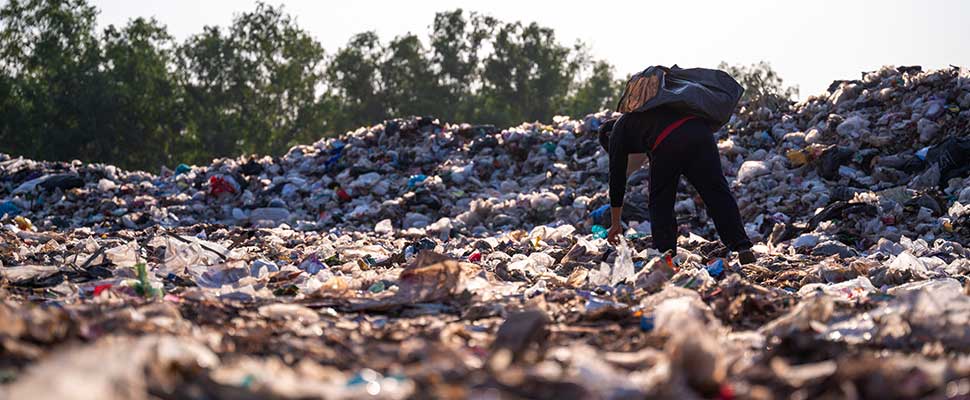Habits That Are Obstacles to Reducing Plastic Consumption
There are several changes in lifestyles as well as in our economic system and culture that must be modified for consumers to merge towards zero-waste purchases.

The Woman Post | Catalina Mejía Pizano
Listen to this article
Plastic waste is one of the biggest challenges that the world is facing. A group of researchers surveyed in Germany surveyed consumers about the use of plastic packaging. Their findings suggest that there are several changes in lifestyles as well as in our economic system and culture that must be modified for consumers to merge towards zero-waste purchases.
It is worth mentioning that plastic pollution has become one of the most urgent environmental concerns since the production of disposable plastic products has grown at a faster rate than our ability to deal with them. The origin of plastics produced from fossil fuels happened just over a century ago and they became more popular after world war II. It is undeniable that plastics were useful in many fields, including medicine, with life-saving devices. They also enabled us to travel to space and produce helmets and even equipment for clean-drinking water.+
However, plastics developed a throw-away culture, in which single-use plastics account for 40 % of the plastic produced every year according to National Geographic. 96% of the German population consider it is important to reduce packaging waste. The amount of plastic packaging waste produced by end consumers in Germany has more than doubled since 1997. Nowadays, according to ScienceDaily, it is at 228 kilograms per capita, much higher than the European average. The Institute for Advanced Sustainability Studies (IASS) surveyed 40 participants identifying 12 barriers to reducing plastic packaging consumption.
1. Lack of knowledge: Consumers find it hard to identify which types of packaging are more sustainable.
2. Hygiene: Participants had doubts about the hygienic properties of unpackaged goods and reusable packages.
3. Habits: Participants reported shopping mostly at supermarkets rather than zero-waste shops. They also showed a tendency not to take their bags.
4. Price: The results suggest that groceries packed in plastic are less expensive than those who lack plastic.
Also read: PLASTIC CAN BE CONVERTED INTO VANILLA FLAVORING
5. Convenience: Participants reported that they found it was easier for them not to take their containers for shopping since it required carrying them longer.
6. Availability: The majority of groceries in supermarkets are exclusively available in plastic packaging.
7. Material properties: Consumers tend to prefer plastic packaging for its properties (light-weight, transparent, opaque, heat resistant).
8. Priorities: Various participants explained that their efforts to reduce the use of plastics contradict some of their priorities. For instance, they want their children’s backpacks to be light-weight, and using glass bottles makes them too heavy so they opt for plastic ones.
9. Reachability: Participants mentioned that zero-waste shops were too difficult to find, while supermarkets were more accessible.
10. Consumer culture: Participants ignored the fact that non-regional and nonseasonal foods require more packaging to maintain their properties while being transported.
11. Time-use: Consumers mentioned that reaching zero-waste shops takes longer and it also takes longer to carry their containers and having to clean them after each use.
12. Diffusion of responsibility: The surveyed individuals agreed that both consumers and industry have a shared responsibility when it comes to plastic. However, they expressed their industry should be more proactive when offering solutions.
In general terms, the results of the survey conducted by IASS show that consumers still need to put more effort to move away from plastic packaging. However, they also require more information and knowledge for this transition to take place. It also became clear that various changes need to take place in culture and lifestyle to effectively reduce plastic packaging.




